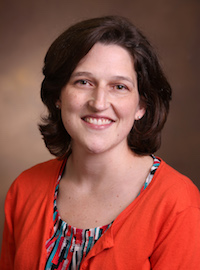
Vivian Lee Weiss, M.D., Ph.D.
- Associate Professor of Pathology, Microbiology and Immunology
Phone
CC-2213 MCN
Nashville, TN 37232
Vivian Lee Weiss, M.D., Ph.D.
- Associate Professor of Pathology, Microbiology and Immunology
(615) 875-3002
vivian.l.weiss@vumc.org
CC-2213 MCN
Nashville, TN 37232
Research Program
Research Description
Hereditary Cancer Research
- The Vanderbilt Hereditary Cancer Registry: The overall purpose of this registry is to identify genetic factors that predispose to tumor development and affect outcomes.
- Inherited Cancer Registry (ICARE) Initiative: The purpose of the Inherited CAncer REgistry (ICARE) Initiative is to provide individuals interested in participating in studies focused on inherited cancer predisposition the opportunity to e
Hereditary Cancer Research Team
Hereditary Cancer Program
Hereditary cancers result from a genetic change, or mutation, that is passed down in a family. People with a change in one of these genes have a hereditary cancer syndrome and a higher chance of getting certain cancers.
Meet the Program Members
The Translational Research and Interventional Oncology Program is the largest of the cancer center's formal research programs, representing a range of clinical and translational cancer research areas. The program is led by Douglas Johnson, M.D., M.S.C.I., Kristen K. Ciombor, M.D., M.S.C.I and Eben Rosenthal, M.D.
Meet the Program Members
The Signal Transduction and Chemical Biology program, led by Ian Macara, Ph.D., and Stephen Fesik, Ph.D., is an active group of more than 40 basic, translational, and clinical scientists whose goal is to understand how signaling networks control cell proliferation and function, to identify drug leads, and to develop new cancer therapeutics.
Meet the Program Members
The Host-Tumor Interactions program is co-led by Jeffrey Rathmell, Ph.D. and John T. Wilson, Ph.D. The basic, translational, and clinical scientists who make up this program are focused on discovering and understanding these interactions, with the ultimate goal of developing strategies to control tumor progression and metastasis by targeting these interactions.
Meet the Program Members
Co-led by David Cortez, Ph.D., and William Tansey, Ph.D., the Genome Maintenance program includes faculty members from over a dozen departments and centers across campus. Research interests of our members are broad and encompassing — from control of DNA replication and mitosis to mechanisms of DNA damage, DNA damage response and repair, chromatin, epigenetics, and the regulation of gene activity. This vibrant group of researchers harbors expertise in biochemistry, cell biology, genetics, genomics, model organisms, proteomics, and structural biology.


